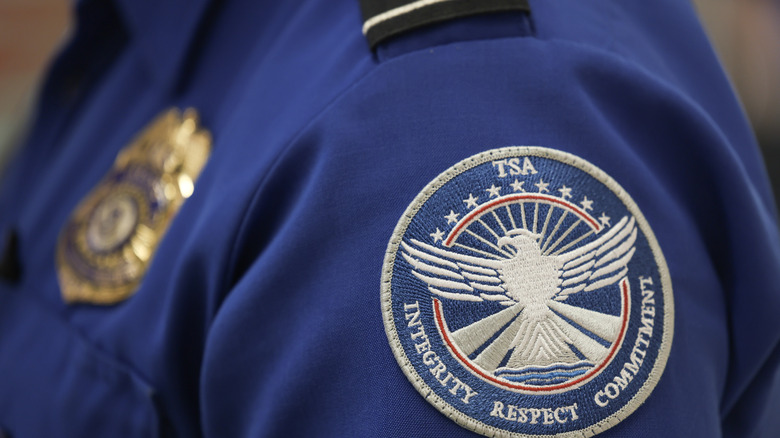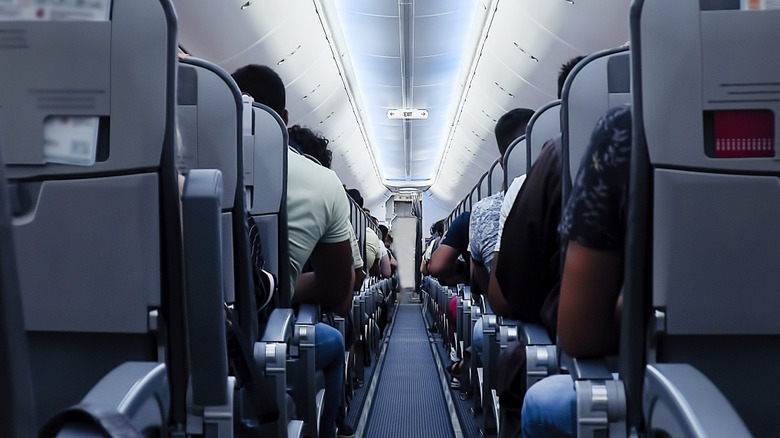Do TSA Agents Carry Guns On Duty?
You might already know one or many of these secrets about airport security in the United States, but here is another: two types of TSA employees work at airport security checkpoints to uphold the mission of the TSA, to "protect the nation's transportation systems to ensure freedom of movement for people and commerce." Transportation Security Officers check passengers' tickets and identification, perform pat-downs, and screen all luggage before it is transported onboard an aircraft, while Security Support Assistants work to keep lines moving and make screening smooth as silk. Both types of agents do not carry guns while on duty and do not check for arrest warrants as they are not federal law enforcement officers.
After the terrorist attacks on September 11, 2001, Congress quickly passed the Aviation and Transportation Security Act. This legislation created and designated the Transportation Security Administration (TSA) as the lead agency for protecting America's transportation infrastructure and traveling passengers. Since then, the TSA has become a fixture in airports around the country and has created the rules for security, including what constitutes a valid form of ID and bizarrely classifying these items as liquids at checkpoints.
Since TSA is not a law enforcement agency, agents cannot arrest you if they catch you traveling with illicit substances in your luggage or a weapon. To put it bluntly, though, they will notify law enforcement if they find something illegal. If TSA agents find an item that does not meet TSA regulations at the security checkpoint, you won't be detained, but your item will be. You'll have to check it in your luggage, mail it home, or give it to TSA for disposal.
TSA's law enforcement division
Even though the everyday frontline employees of TSA are not armed, the TSA has a specialized "last line of defense" that makes arrests, conducts criminal investigations, patrols airports, and protects passenger aircraft coming to and from the United States from terrorism. TSA Air Marshals are armed with a pistol and a baton and carry handcuffs to subdue threats and stop terrorist attacks in America's skies or to help subdue a belligerent drunk or violent passenger. Since there is no guaranteed backup available, air marshals undergo rigorous training at several Federal law enforcement training centers and normally have some of the best scores when shooting.
The TSA's Law Enforcement/Federal Air Marshal Service (LE/FAMS) division works with the FBI and other U.S. law enforcement agencies to deploy armed air marshals on a small percentage of U.S. domestic and international flights based on origin, destination, flight path, and the amount of fuel on board. These agents normally sit at the back of the aircraft and blend in with regular passengers on flights that are deemed to be at higher risk for terrorist attacks or hijackings to minimize security threats to passengers and the flight crew. Before boarding, air marshals will make themselves known to the captain and flight attendants, but passengers will generally not know if an air marshal is present on a normal flight for security reasons.
Air marshals may not be the only armed personnel on board an aircraft. In the United States, pilots can also apply for the Federal Flight Deck Officer (FFDO), program where they learn invaluable defensive and shooting skills to protect the flight deck and their passengers on board. After completing their course, pilots become deputized law enforcement officers and gain the right to carry a concealed firearm on board their aircraft.

